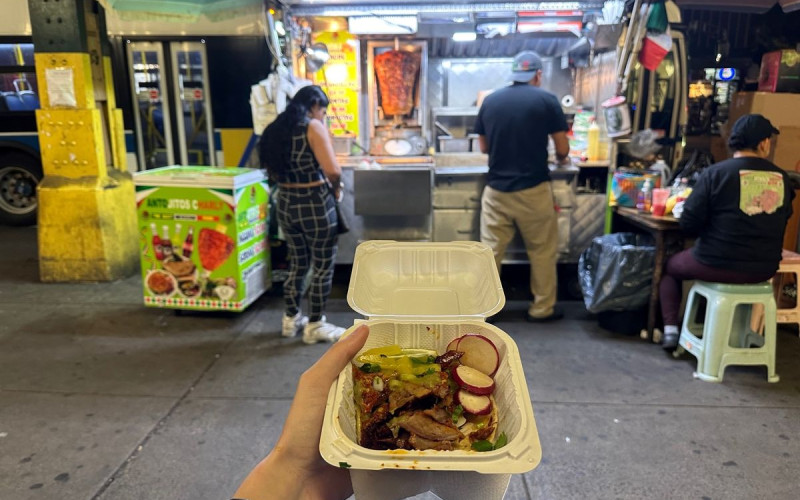A small item in the mayor’s draft budget that was released today caught our attention, because it may have big impacts on the street vendors we work with. Mayor Bloomberg wants to try to collect the millions of dollars in unpaid fines issued to vendors, and he wants to do it by spending $580,000 of city money on lawyers to pursue these so-called scofflaws. What he fails to grasp is the reason why so many fines go unpaid – it’s usually due to poverty and discrimination, not disrespect for the law (read more about this proposal on Gothamist).
On our regular food cart tours, we talk about the exorbitant fines street vendors are often slapped with. As of 2006, fines can be as high as $1,000 per violation, and while unsanitary conditions certainly warrant high fines, that’s not always what the vendors are being ticketed for. Many city agencies can issue tickets to vendors (including the health, sanitation, and police departments) for any number of infractions that are not always safety or health concerns. For instance, being too close to an intersection or doorway (even by an inch) can warrant a $1,000 fine. Having your mobile food vendor license in your pocket instead of around your neck has been known cost $1,000. Is your umbrella touching a street post? That’ll be $1,000!
The current system uses a scale for tickets – the first violation is $50, moving upwards until the sixth ticket within a two-year period reaches the top fine of $1,000. Six tickets may seem like a lot, but with enforcement agencies actively looking for violations (and often targeting immigrant vendors with limited command of the English language or knowledge of the American legal system), a single visit from an inspector or cop can result in six or more violations, and thousands of dollars in fines.
I have witnessed on three separate occasions during our tours vendors being inspected by a Department of Health representative, and in every instance, a ticket was written for some minor violation. Vendors have said to me that if no ticket is issued, the DOH employee is told they have not done a thorough job, and they must return to the cart to find an infraction. And at $1,000 per violation, these tickets usually go unpaid – not because the vendors are delinquents, but because most have no hope of ever paying this volume of tickets that can quickly add up to tens of thousands of dollars.
Even the city’s own Independent Budget Office said in a 2010 report that the street vendor regulations are “costly, confusing, and leave many disgruntled.” In 2008 and 2009, the city issued $15.8 million in tickets, but collected only $900,000, and spent another $7.4 million on enforcement. They concluded, “The number of agencies involved in street vendor regulation contributes to the convoluted rules and enforcement.”
Our friends at the Street Vendor Project have been working hard to have those $1,000 fines lowered to a much more reasonable $250, which was the rate before Mayor Bloomberg quadrupled them in 2006. They also support a measure that would distinguish between violations, meaning the fine scale would only move up when breaking the same rule repeatedly, and vendors would reach the top bracket of $250 after only four similar violations. If the fines were lowered and made less punitive, the Street Vendor Project argues, many more would be paid, and more revenue would be brought to the city. Both of these measures are before the City Council, and both have been stuck in limbo since April 2012 as Speaker Christine Quinn refuses to bring them up for a vote (you can let her know what you think about that).

And today Mayor Bloomberg took another step backwards; instead of addressing the high fines, he has proposed to spend $580,000 to create a team of seven lawyers that will hunt down violators and somehow force them to pay their tickets. He is hoping to recoup money for the city, but most vendors will never be able to pay these huge fines – and I could have told you that for free. Instead, most will just give up their vending businesses, and we will end up with a lot more unemployed street vendors.
No doubt that money could be invested in lowering the fines, making the laws more clear and sensible, and training the authorities on proper enforcement of the law (yes, with such a confusing system, many of these tickets are wrongly issued). Most vendors abide by the law, but the current system makes it very easy for them to get buried in a mountain of tickets that they can never hope to dig themselves out of. We should be encouraging these entrepreneurs, not hounding them with lawyers.




